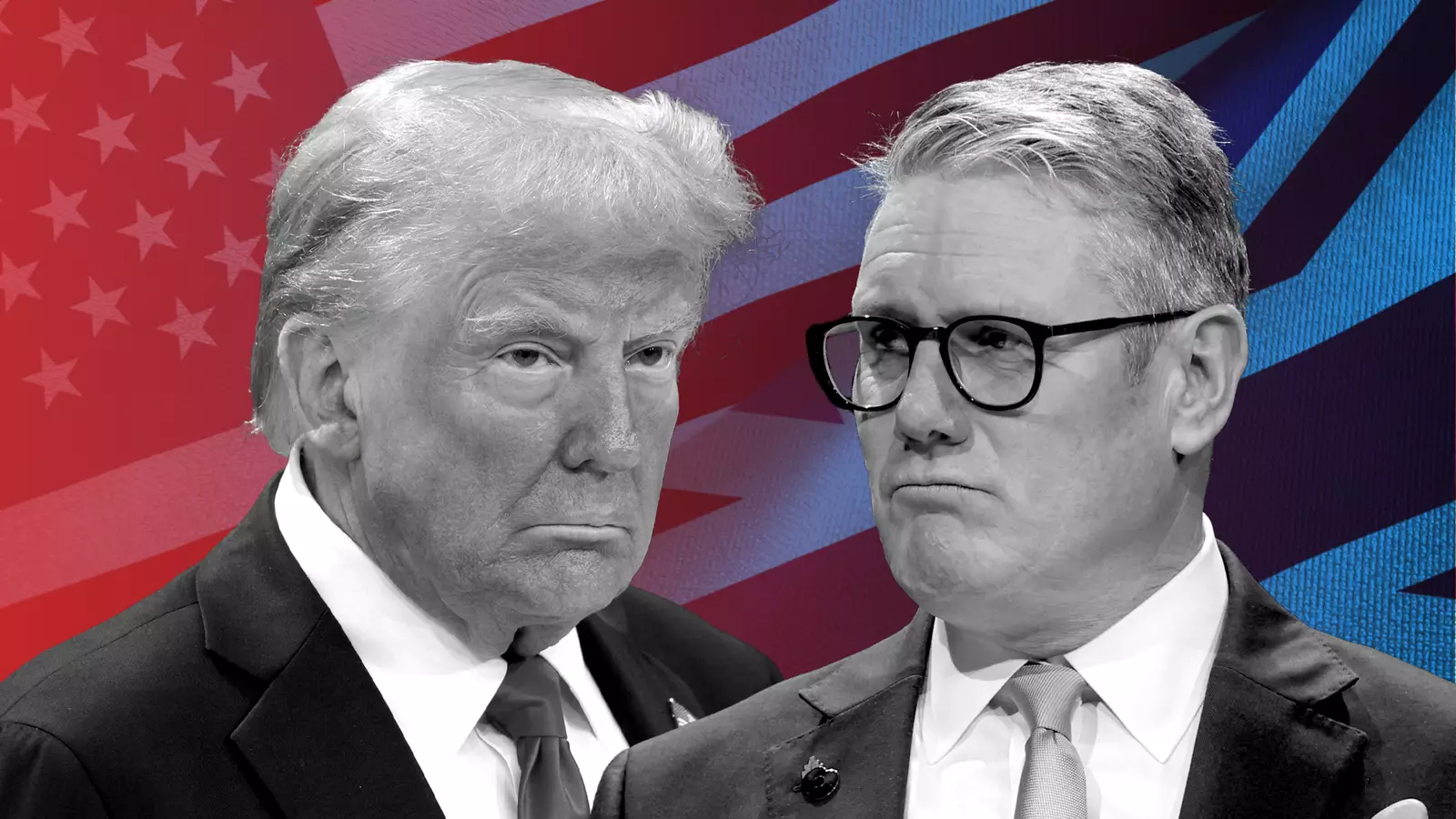As Britain prepares to observe its annual Remembrance Day, this year holds an additional layer of significance: it marks the 80th anniversary of the D-Day landings. The ceremony traditionally serves as a poignant reminder of sacrifices made during past conflicts, and this year the honor extends to the heroes of Normandy. The speaker of the House of Commons, Sir Lindsay Hoyle, alongside the Imperial War Museum, will illuminate the Elizabeth Tower with images celebrating those who fought bravely in the Allied campaign to liberate Europe. As political leaders gather at the Cenotaph to pay their respects, one cannot help but notice an unsettling paradox: many of these leaders have supported reductions in the UK’s defense capabilities while paying tribute to those who faced the ultimate sacrifices in battle.
The D-Day landings are ingrained in the narrative of British patriotism; they symbolize a crucial moment when British and American troops united to confront tyranny. However, recent political missteps, such as Prime Minister Rishi Sunak’s premature departure from international commemorations in June, raise questions about commitment to this legacy. Since World War II, the United Kingdom has largely leaned on the security umbrella provided by the United States, an arrangement solidified by the North Atlantic Treaty Organization (NATO). Yet, signs of geopolitical distress—ranging from escalating tensions in Eastern Europe to rising anxieties in the Asia-Pacific—cast a shadow over the reliability of this alliance.
The urgency to reassess Britain’s military readiness is amplified by contemporary upheavals. Increasingly aggressive actions by Russia, alongside ambitions from China and the unpredictable posturing of North Korea, define a perilous global landscape. The prospect of a renewed conflict seems to loom larger with each passing day. General Sir Roly Walker, the newly appointed head of UK armed forces, underscored this need for preparedness by calling for a strategy that doubles the army’s “lethality” to counteract threats from what he terms the “deadly quartet.” Concurrently, the BRICS nations’ geopolitical maneuvers, as exemplified by North Korean military involvement in Ukraine, illustrate a willingness to escalate local disputes to international proportions.
While British leaders, including George Robertson, the former defense secretary, acknowledge these threats, their willingness to invest in comprehensive defense programs appears tepid. Recent parliamentary inquiries highlight the tension: concerns about resource allocation are palpable, and yet no substantial plans have come forth to substantially enhance the UK’s military funding amidst growing global dangers.
There is an increasingly fraught interplay between political aspirations and defense realities. In parliamentary debates, the Leader of the Opposition, Kemi Badenoch, pressed her counterpart Sir Keir Starmer regarding when the UK would reach NATO’s recommended defense spending target of 2.5% of GDP. While Starmer noted previous administrations’ failures to meet these benchmarks, the underlying truth is that a far more significant investment—potentially reaching 3%—may indeed be necessary to ensure the nation’s security given the U.S. commitment remains nebulous at best.
The United States represents a disproportionate share of NATO’s defense expenditure, accounting for a staggering 68% of the alliance’s overall military funding. Yet, as the geopolitical climate shifts, the likelihood of a reduced American military presence in Europe seems inevitable, fueling concerns over Britain’s ability to face future conflicts independently.
America’s strategic pivot towards China, coupled with the prospect of changes in leadership, presents daunting challenges for European partners. The prospect that former President Trump could cast a critical eye on NATO’s burden-sharing arrangements raises alarms about the reliability of transatlantic support. The possibility of having to navigate security challenges without America’s full backing is sobering, with experts predicting a gradual decline in U.S. military capacity in Europe.
To compound matters, the financial constraints on UK defense funding could drastically affect its strategic options. Current defense spending has been described as a “black hole” by the newly appointed Defense Secretary, John Healey, who faces the daunting task of addressing unfunded commitments inherited from previous governments. With the specter of conflict in Ukraine as a glaring reminder of the stakes involved, the question arises: is the UK truly prepared?
As leaders gather at the Cenotaph to honor the sacrifices of past warriors, they should also reflect on their responsibility to ensure such sacrifices are not repeated due to ignorance or neglect. The complexities of modern warfare necessitate vigilant and proactive defense policies. Remaining passive while paying lip service to history would be a profound disservice to both the memories of those who fought and the current and future generations who may face similar choices amidst rising tensions across the globe. As the echoes of remembrance fade, the onus falls on today’s leaders to ensure their homage is accompanied by action and resolve in securing a better, safer future.

Leave a Reply